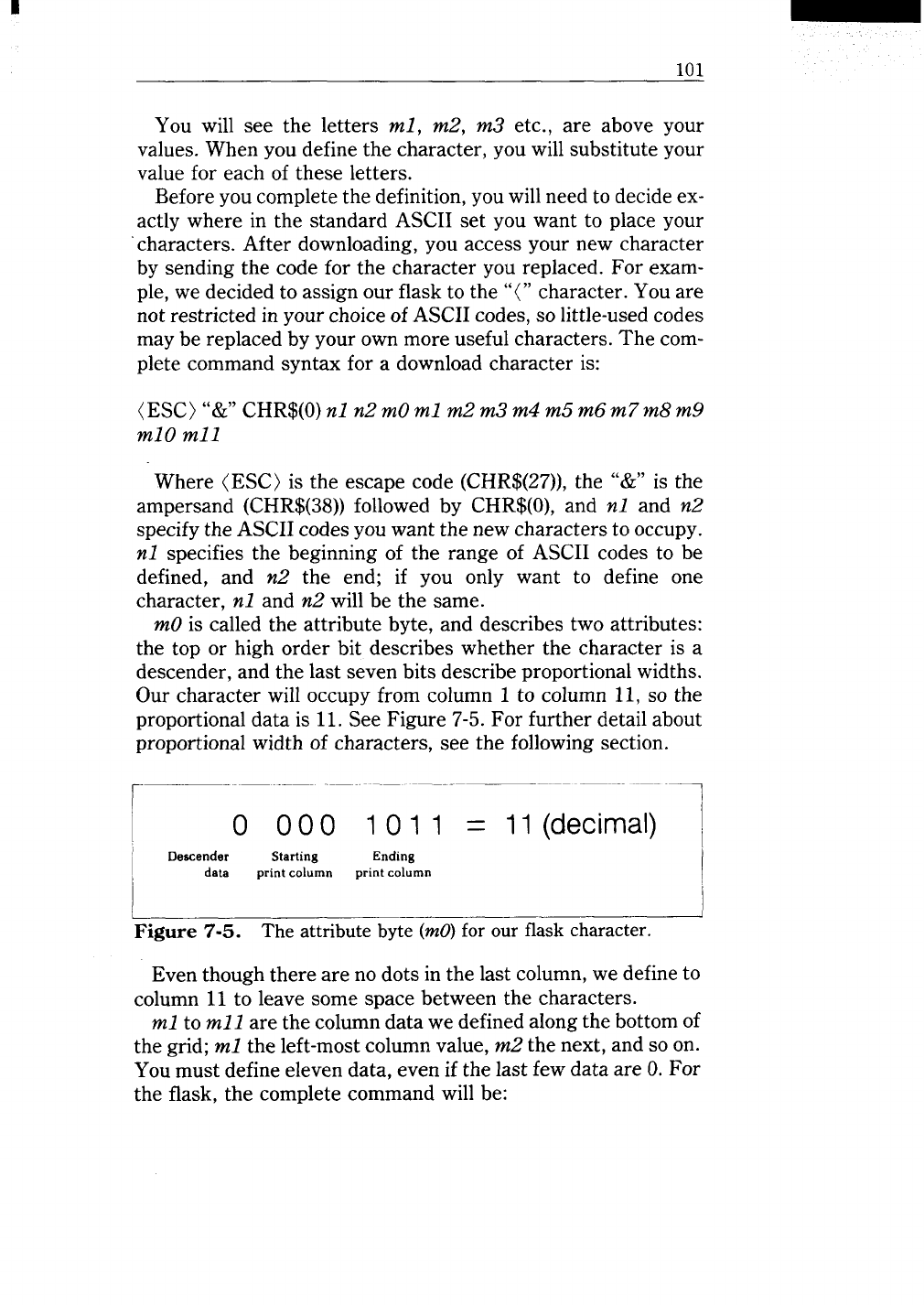
101
You will see the letters ml, m2, nz3 etc., are above your
values. When you define the character, you will substitute your
value for each of these letters.
Before you complete the definition, you will need to decide ex-
actly where in the standard ASCII set you want to place your
‘characters. After downloading, you access your new character
by sending the code for the character you replaced. For exam-
ple, we decided to assign our flask to the “(” character. You are
not restricted in your choice of AS(X codes, so little-used codes
may be replaced by your own more useful characters. The com-
plete command syntax for a download character is:
(ESC) “&” CHR$(0)nl n2 mOml m2 m3 m4 m5 m6 m7 m8 m9
m10 mll
Where (ESC) is the escape code (CHR$(27)), the “&” is the
ampersand (CHR$(38)) followed by CHR$(0), and
nl and nZ
specify the ASCII codes you want the new characters to occupy.
nl specifies the beginning of the range of ASCII codes to be
defined, and n2 the end; if you only want to define one
character, nl and n2 will be the same.
mOis called the attribute byte, and describes two attributes:
the top or high order bit describes whether the character is a
descender, and the last seven bits describe proportional widths.
Our character will occupy from column 1 to column 11, so the
proportional data is 11. See Figure 7-5. For further detail about
proportional width of characters, see the following section.
r—-—--------‘----
‘-’~
0 000 1011
= 11(decimal) ~
Descender Starting
Ending
dab print column print column
Figure 7-5.
The attributebyte (wzO)for our flask character.
Even though there are no dots in the last column, we define to
column 11 to leave some space between the characters.
ml to mll are the column data we defined along the bottom of
the grid; ml the left-most column value, m2 the next, and so on.
You must define eleven data, even if the last few data are O.For
the flask, the complete command will be:


















